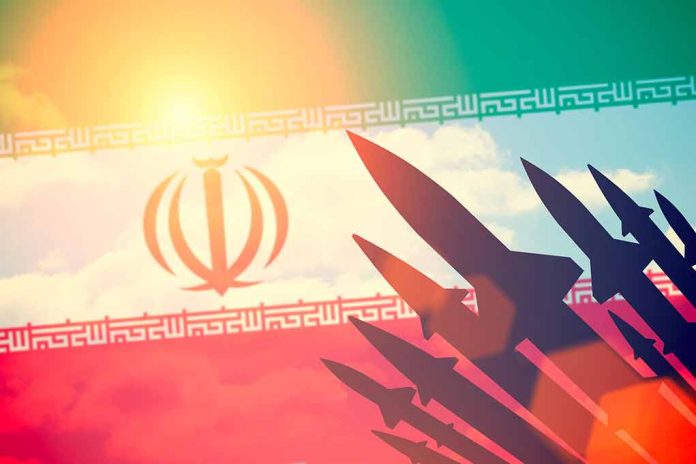
The United States has issued a stern warning to Iran, threatening a “swift and severe” response if Tehran proceeds with supplying ballistic missiles to Russia, a move that could dramatically escalate the ongoing conflict in Ukraine.
At a Glance
- U.S. warns of “swift and severe” response if Iran transfers ballistic missiles to Russia
- Reports suggest Iran may soon supply hundreds of missiles to support Russia’s war in Ukraine
- U.S. officials express deep concern over the deepening security partnership between Russia and Iran
- The potential missile transfer follows a recent visit to Iran by Russian Security Council secretary
- Iran denies supplying weapons to Russia despite evidence to the contrary
U.S. Issues Stark Warning to Iran
In a clear message to Tehran, the United States has made it known that any transfer of ballistic missiles to Russia will be met with decisive action. This warning comes amid growing concerns about the strengthening military ties between Iran and Russia, which threaten to further destabilize the situation in Ukraine and pose significant risks to European security.
State Department spokesperson Vedant Patel emphasized the gravity of the situation during a recent press briefing, stating, “Together we are prepared to deliver a swift and severe response if Iran were to move forward with the transfer of ballistic missiles which would in our view represent a dramatic escalation in Iran’s support for Russia’s war of aggression against Ukraine.” While specific countermeasures were not disclosed, the message was unmistakably clear.
The US warns of a "harsh" response if Iran transfers missiles to Russia
The United States warned Iran on Monday of the consequences of arming Russia, saying it had information that Tehran would provide Moscow with hundreds of ballistic missiles.
"We are prepared to provide a… pic.twitter.com/C380IFOkhO
— S p r i n t e r (@SprinterFamily) August 12, 2024
Deepening Security Partnership Raises Alarms
The potential missile transfer is not an isolated incident but part of a broader pattern of cooperation between Iran and Russia. This partnership has been a source of growing concern for the United States and its allies since the beginning of Russia’s full-scale invasion of Ukraine. The implications extend far beyond the immediate conflict, as Patel noted, “This partnership threatens European security and illustrates how Iran’s destabilizing influence reaches beyond the Middle East around the world.”
“We’ve been warning of the deepening security partnership between Russia and Iran since the onset of Russia’s full-scale invasion of Ukraine. This partnership threatens European security and illustrates how Iran’s destabilizing influence reaches beyond the Middle East and around the world,” stated State Department spokesperson Vedant Patel.
Intelligence reports suggest that Iran may be preparing to supply Russia with Fath-360 ballistic missiles, capable of carrying a 150-kilogram warhead with a range of up to 75 miles. This development follows reports of Russian troops traveling to Iran for training on these missile systems, indicating a high level of military cooperation between the two nations.
Iran’s Denial and International Skepticism
Despite mounting evidence, Iranian officials continue to deny providing any weapons, including drones, to Russia for use in Ukraine. This stance has been met with skepticism from the international community, particularly in light of documented Russian attacks using Iranian-made drones against civilian targets in Ukraine.
“Iranian officials also continue to deny providing any UAVs to Russia when evidence is plain for the world to see that Russia has used these UAVs in relentless attacks against the civilian population in Ukraine, against civilian infrastructure,” Patel said. “This duplicity is only the latest reminder to the international community that the Iranian regime lacks in credibility.”
The potential transfer of ballistic missiles represents a significant escalation in Iran’s support for Russia’s military actions. It follows a pattern of increasing cooperation, including the provision of attack drones and technical information for building “kamikaze” drones. This escalating military partnership has already led to sanctions from Western nations against Iran’s ballistic missile program.
As tensions rise and the threat of further escalation looms, the international community watches closely. The United States’ warning to Iran serves as a clear indicator of the high stakes involved and the potential for severe consequences should Iran proceed with the missile transfer. The coming weeks will be critical in determining whether diplomacy can prevail or if the world will witness a dangerous new phase in the ongoing conflict.







